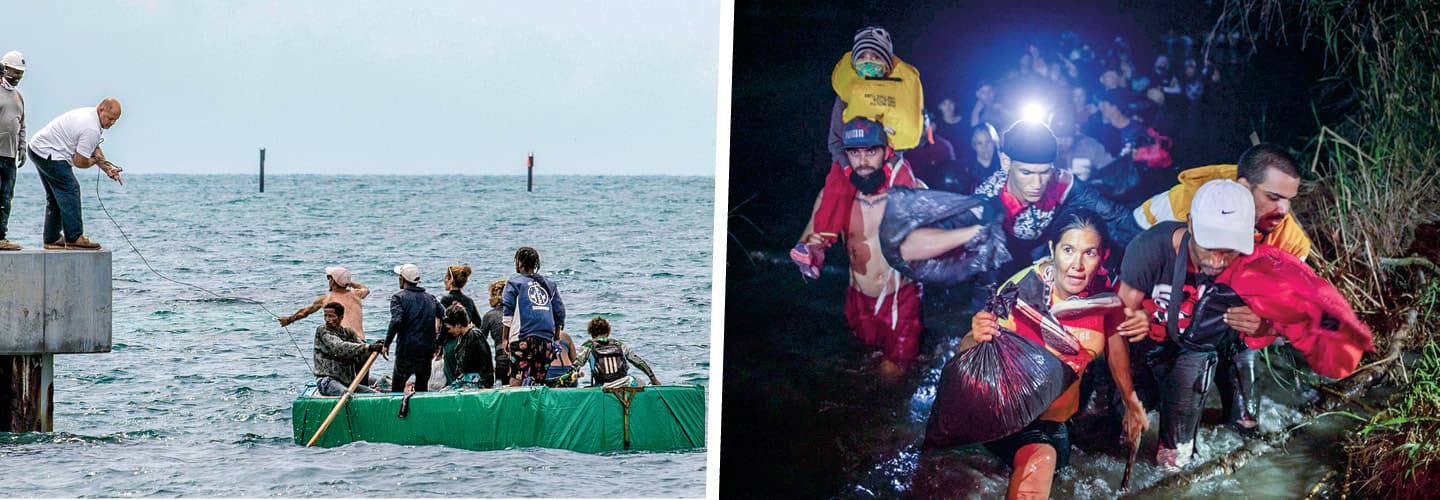Roger García Ordaz has tried to flee Cuba 11 times. He’s used boats made of wood, Styrofoam, and resin, and has a tattoo for each failed attempt, including three boat mishaps and eight times the U.S. Coast Guard picked him up at sea and sent him home.
Hundreds of homemade, rickety boats left last year from the shores of Baracoa, a fishing village west of Havana where García, 34, lives.
“Of course, I am going to keep on throwing myself into the sea until I get there,” he says. “Or if the sea wants to take my life, so be it.”
Living conditions in Cuba have long been precarious, but now, deepening poverty and hopelessness have set off the largest exodus from this Caribbean island nation since Fidel Castro rose to power and established Communist rule more than 60 years ago.
Cuba has been hit by a one-two punch of tighter U.S. economic sanctions and the Covid-19 pandemic, which devastated one of Cuba’s lifelines—the tourism industry. Food has become even more scarce and more expensive, lines at pharmacies with scant supplies begin before dawn, and millions of people endure daily hours-long blackouts. And all that comes on top of a long history of a government that represses its people and offers few individual freedoms.
Roger García Ordaz has tried to flee Cuba 11 times. He’s used boats made of wood, Styrofoam, and resin. Three of his trips ended in boat mishaps. The eight other times, the U.S. Coast Guard picked him up at sea and sent him home. He has a tattoo for each of these failed attempts.
García, 34, lives in Baracoa, a fishing village west of Havana. Last year, hundreds of homemade, rickety boats took off from the village’s shores.
“Of course, I am going to keep on throwing myself into the sea until I get there,” he says. “Or if the sea wants to take my life, so be it.”
Living conditions in Cuba have been rocky for a long time. Now, deepening poverty and hopelessness have driven many to leave the country. It’s the largest exodus from the nation since Fidel Castro rose to power and established Communist rule more than 60 years ago.
Cuba has been hit hard by tighter U.S. economic sanctions and the Covid-19 pandemic. Covid gutted one of Cuba’s lifelines, the tourism industry. Food has become even more scarce and more expensive. The lines at pharmacies, which have few supplies, begin before dawn. Millions of people endure daily hours-long blackouts. And all that comes on top of a long history of a government that represses its people and offers few personal freedoms.

